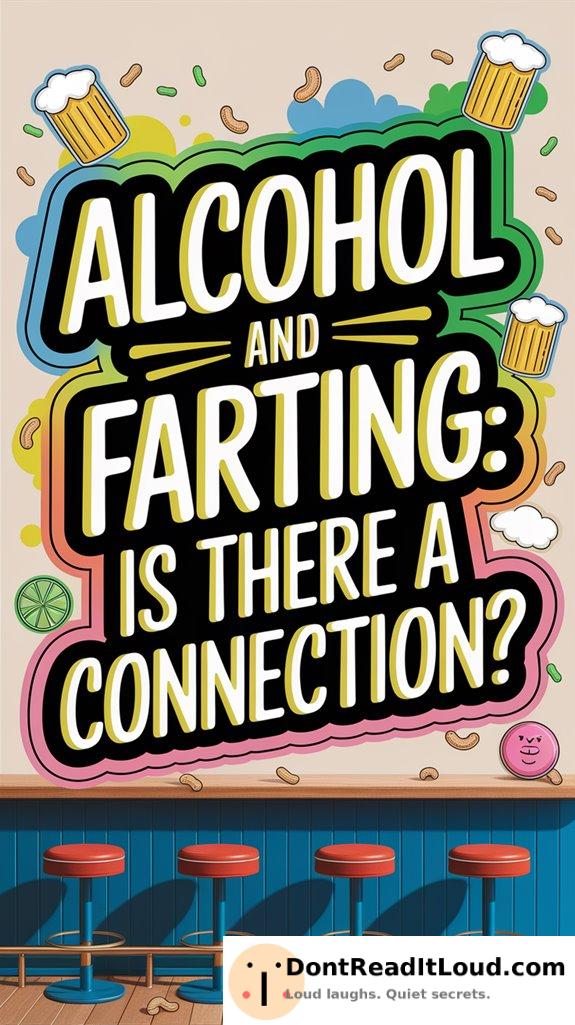
Yes, there’s definitely a connection between alcohol and farting. When you drink, alcohol irritates your digestive tract and can slow down digestion, leading to more gas. It also changes the balance of bacteria in your gut, which may increase gas production. Sugars and carbs in beer, wine, and cocktails are fermented by gut bacteria, creating even more gas—especially if you snack on greasy or starchy foods. If your farts seem stronger or smellier after drinking, you’re not imagining it. Curious about what really happens inside your gut?

Although it’s often a source of embarrassment or laughter, farting after drinking alcohol is surprisingly common. If this has happened to you, you’re definitely not alone. When you drink, your body sets off a chain reaction that can influence your gut health in ways you mightn’t expect. Alcohol can irritate your digestive system, disrupt the natural balance of bacteria in your gut, and set the stage for increased gas production. The process starts as soon as you pour that first drink, and it’s closely tied to how your body tackles alcohol metabolism.
As your liver works to break down alcohol, your digestive tract can become a little less efficient. Alcohol slows digestion and can affect how your intestines absorb nutrients, sometimes causing bloating or gas. It doesn’t stop there—alcohol also alters the delicate balance of your gut microbiome. This imbalance gives certain gas-producing bacteria a chance to thrive, leading to more frequent or odorous farts.
When you pair alcohol with certain dietary choices, such as greasy bar food or carb-heavy snacks, you’re giving your gut even more fuel for the fermentation process. Fermentation is a natural process where gut bacteria break down undigested carbs and sugars. Alcohol, especially beer, wine, and certain mixers, contain simple sugars and fermentable carbohydrates. These substances reach your colon relatively intact, providing a feast for your gut bacteria. As they ferment these sugars, they release gases like hydrogen, methane, and carbon dioxide.
If you’ve noticed that your farts are smellier or more frequent after a night out, it’s likely due to this ramped-up fermentation process in your colon. Your dietary choices before, during, and after drinking play a big role in how your body reacts. Foods high in fiber, fat, or sugar can all exacerbate gas production when combined with alcohol. For example, pairing beer with pizza or cocktails with rich desserts forces your gut to work overtime, increasing the chances of digestive discomfort.
If you already have sensitivities or underlying digestive issues, like irritable bowel syndrome (IBS), you may find that alcohol makes everything worse. Beyond the physical effects, there are also social effects to take into account. Passing gas in a social setting, especially after a few drinks, can be mortifying. You might feel self-conscious or worry about what others will think. This awkwardness can sometimes make you avoid social gatherings or limit your enjoyment of certain foods and drinks.
While it’s a natural bodily function, the embarrassment is real. Understanding how your gut reacts to alcohol can help you plan ahead and avoid discomfort or awkward moments when out with friends.
Conclusion
If you’ve noticed increased gas after drinking, you’re not imagining it. Alcohol can slow digestion and make you fart more. Sugary or carbonated drinks can add to the problem. To reduce gas, consider drinking less alcohol and choosing your beverages carefully. Your digestive system—and those nearby—will appreciate it!



